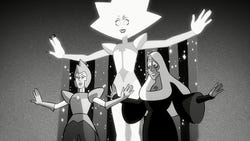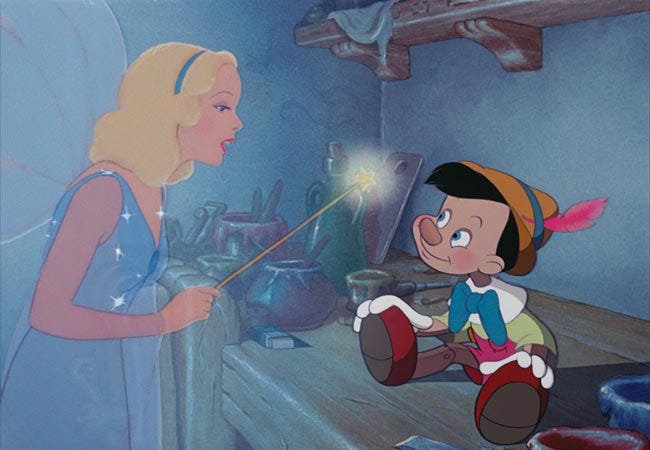‘I am not that I play,’ Viola tells Olivia in Twelfth Night, where she’s disguised as Cesario so she can be employed by Orsino, whom she falls in love with. Do you know why Shakespeare’s plays seem so obsessed with jesters and jester-like figures? I know your teacher said it’s because deception is funny but we can go beyond that. Deception is our only truth and these jokers embody that. Take it from a jester; lies do a lot to quieten the revolts inside and outside the palace.
Walk with me. The palace is only bearable at night. At least the prying eyes busy at work are hidden enough for me to pretend I’m by myself. A lifetime of hiding does things to your body and changes it permanently, so now both the shadows and the light are terrifying for different reasons.
Hang out with the rich and see for yourself, by the way. Deception is the glue holding our social fabric together because the world we have made together is broken and only allows hiding, not honesty. When your parents pretend the ceiling won’t cave in, when your government signs on for loan after loan and pretends it’s going straight into the coffers of your neighborhood hospitals and libraries instead of their pockets (and when they tax you, they say you should have been less mortal), when your teacher pretends to believe in what they’re imparting to you, we all deceive each other to get along.
You know this. We all know the truth has no place in our worlds or our stories. As much as I love him, my buffoon king loves flattery from the courtiers who would have him put to death tomorrow. But I see you insist on truth and consequences anyway, insist on this façade of justice as though you know anything about the things you say. All of you have strange ideas of what the truth looks like, whom you demand it from, what the punishment for dishonesty should be.
But I digress. Let me make my way towards the punchline slowly. I’m pretending I’m interested in having this conversation — you’re pretending you have enough depth to change and reconsider your cruelty. I’m pretending that I have faith in you, instead of flinging a brick through your window to show you how much you love to speak the language of fear and control when you’re safe from your beloved consequences.
I’m pretending to be rational and hoping it will pay off.
In Shakespeare’s plays, anyone can be a jester because it’s about the qualities, not the role. If you’re cheeky, a liar, a cheeky liar, non-binary, bending gender — basically, if you’re Other and dazzling about it, you can be the Fool. Some of the garden-type varieties are1:
the twins confusing everyone (like Viola dressing up as Cesario until half the town is obsessing over her)
the actor-boys in disguise as character-girls as boys causing queer panic as they enchant and flirt (Rosalind disguising herself as Ganymede the shepherd boy and running into her old paramour Orlando who’s still obsessed with her; she promises to cure him by playing Rosalind)
the characters who pretend to die so everyone will regret their behavior (Hero punishing Claudio)
the Fool in the court secretly rolling his eyes at every royal
the playwright folding this origami plot
the one buffoon convinced he’s not a fool and is the smartest of them all (like Bottom)
the giggling sprites who refuse to abide by human morality and see all the drama as fun (Puck and Ariel).
(A jester, an analyst and an astrologer. As a Gemini, I'm doomed to have too many talents and too many cards up my sleeve. Surprise, I'm a magician too. The Gemini creed: the magpie’s greed.)
So here are some things we can expect from jesters like me.
The jester is always lonely in their secret, in their deception. They hide away one half as the other performs on the stage. Coming after Taurus, the Gemini jester understands the cruelty and hypocrisy of desire. They see what happens to the unwanted so they become shiny, brilliant, sharp. The Fool pretends he can stand the king; Viola pretends she’s not in love with her king-duke to stay in favor. Every time the play starts again, one of the twins inside the jester must die for the other to rise out of the crypt — Mercury’s children the same psychopomp as their parent. Coming after Taurus, the jester spins in the spotlight, fighting to stay alive. Pagliacci weeps in the doctor’s office from the agony of being seen but not known; Viola cannot be Viola until Sebastian acknowledges her as such. Until he returns, she is Cesario for the entire play, her name unsaid even by her. I wonder if he would have preferred it that way, for his past to stay dead.
Hermes is the child of Zeus, the most visible god, but also of Maia, who keeps to herself in her cave2. They’re bilingual that way, speaking in the language of both power and powerlessness. Jesters learn how to be visible enough to be entertaining but not so visible that they threaten to be people, threaten to be more than receptacles for your vacuous entertainment. We’re the queer people creating your media and the language you love to use, the minority musicians and actors you co-opt, the puppets you love to make dance for you while you act like you bestowed visibility on us as a gift. You pretend fame is not abuse3 and we accept. We come on stage and say the funny things you repeat later to your friends and pretend were all your inventions. Bilingual Hermes shows up in these plays as split in two: the Vice Fool (unintentionally silly/the party) and the Wise Fool (the cynic muttering sage prophecies no one bothers to hear/the party pooper).
Gemini is a mutable sign, double-bodied as two figures: the Vice Fool and the Wise Fool, the thief and the detective, the diviner and the skeptic trying to peek under the table. Those center-periphery binaries you’ve all been spinning have been nice and all but allow me to collapse them for good. When given his gifts, Hermes becomes the only god who can slip into the Underworld without seeking permission from Hades first. Have you ever wondered what the trickster god sees on their lonely journeys, as they guide souls into the afterlife? Like all jesters, Hermes must bear witness to wealth and opulence but never partake or be considered a common thief. Hermes must always be mistrusted for your own good. They create without ownership, delight without reward, invent without myth.
Mercury’s homes are located on either side of the luminaries: Gemini to the left of Cancer and Virgo to the right of Leo. Speed-wise, they can never travel more than one sign away from the sun. As the king’s jester, I must live constantly at his side so you can imagine what I get to hear in such close proximity. You cowards whisper, always terrified of losing power and always greedy about seizing more; like a coward, I seethe but I listen and I humor you, afraid of losing my rank. As much as visibility hurts, being forgotten is so much worse. As much as I hate all of them, I don’t know where else I belong. Better singing myself hoarse in this gilded prison than rotting silently in the dungeon underground. Better this carousel, these margins inside the center, than the margins too far away to be mapped. Better to be burnt by the sun, better to be Icarus falling out of the sky, better to be Cassandra raving in her tower than to never be mythic, than to be as small as mortal.
I hear your whispers. Your lives are built around imaginary fears. The fear that women are deceiving you by painting their faces, the fear that people are desiring those you say they shouldn’t, the fear that men may like women’s things too much and might stop deriding them long enough to see the fun in the frivolity — the fear that if they stop fighting with each other, they would fight you instead. I see it keep you awake, see you tell the people that some among them are inherently more manipulative and deceitful. That’s why they forget the lies you tell them everyday but flare up at each other for stealing a dollar instead of two billion like you.
Jesters are liminal. They’re always in the in-between, separated from society and their old status but never returning to reintegrate into the new rank4. We must be classless. A clown’s clothes indicate no gender; the makeup turns each face into the same.
The liminal float among us: children, queer people, undocumented people, refugees. Separated from their old ties but unable to come into new ones because everyone needs a trickster god to fear and you cast them into this role because they do not have enough power to resist. Your cultures and your myths and your societies would fall apart if you didn’t have an Outsider to define yourself against, the stranger who is always everywhere. The liminal must always be a fluid mass so you can rumor it into being, into whatever explains the courtiers’ own incompetence: the undocumented people steal your jobs, the queer people steal your spouses and influence your children into disobeying you by painting their nails (can’t barter your daughter away if she has a mind), the refugees bring guns and drugs to your peaceful utopia.
But the liminal make the world you discover and call yours. All the gods gang up on Loki, bent on humiliating him into being like them. Every story needs a villain, especially under capitalism; you make them homeless for non-compliance and then crack the whip, threatening the others with death and loneliness if they disagree with you like we do. We become your bogeymen to scare the rest of your sheep into compliance. You know how to steal like Loki and Hermes, how to trick and deceive and take credit for things that aren’t yours, but not how to invent and dream like them. We make the monstrous parts of your gods come alive, the parts you would like to believe never existed because you wish your gods were as small as you.
We make the lyre, write the peace treaties, play music you have never heard and spin stories you could never dream of. You make it our job to create, use our imagination to give meaning to everything, and then call us the liars, traitors, threats to social order because you want a monopoly on bending the rules. And worst of all, you always bend them in the most boring ways possible.
How can you leave the burden of curiosity up to us and then shame us for acting on it? You would die out if you weren't challenged (and bested, as much as you write history to deny it). We have to be quick to survive what you've created for us and then tame that same quickness so you don't see it. We have to see the new world coming so we can coax it from a word, a story, an idea, so we can protect it from your watchful eye.
Our curiosity is as much about survival as about delight. We have to stay ahead of things because your things are out to erase us.
The better ones among you try to defend us by arguing that we can assimilate, that we can be good model citizens in your perfect empire. I want you to do better. If we're finally inside, someone else will take our place outside this tight narrow confining morality. You have read about violence as sword, as padlock and key, but violence is also in the values we build things around. Morality is violent because when it deems someone good, it deems them human.The better ones among you think the solution is to simply bring us into the fold but some of us don't want to be here. Just look at all of you. As much as you celebrate being inside, you're miserable and unhappy. You're fascinated by the way things are done outside, even if you try to hide it behind contempt and scorn. The same curiosity you smite us for drives you.
The palace keeps us in as much as it keeps others out. But those desperate to get in don't realize the knives concealed in the silk sleeves here.
You say we must be ashamed of who we are if we lie about our genders, our sexualities, our origins, and deny how dangerous you have made it for us to tell the truth. You write all your religions to say that truth is the greatest good. Jupiter is in detriment in Gemini because there is no one truth, because the people who insist on it as a moral absolute are usually the most furtive about it. The teachers who ruin your life for cheating all cheated. The government asking you to pay tax has not paid any for generations and has orchestrated several deaths to hold onto their wealth. The parents who tell you that nothing stays hidden are lying about their incomes to their own parents, friends, neighbors, right now. You could be terrified by nothing being holy or you could be thrilled. If nothing is holy, you can finally find out what your back does when it’s not always prostrate in prayer.
Have you ever wondered why some people can get away with a lie? Why can your leader’s crimes be on every newspaper every 2 months with no consequences? Our obsession with purity is limited to a handful of people; it’s those we call impure that we considers the guardians of purity. Police the gossiping women, the queer kids exploring, the undocumented people forming community. Limit their movement; hunt them; quarantine them.
When we ask for greater surveillance of certain groups, we never mean ourselves. There must always be someone else just more prone to thievery, like the house-maid because she’s poor and not your white-collar regional manager husband embezzling from a company already profiting from preying on the vulnerable. When someone’s hands are dirty, they can never be yours because you just commit the right sort of crimes. When you worship respectability, you weep at the devastation these strange unknown Others are bringing to your social order: the people of color creeping into your neighborhood, the Bahujan and Dalit colleagues daring to eat in the same kitchen as you, the refugee children studying with your progeny and giving them strange ideas of other lands.
Of course, the assumption here is that the social order is good and right, that those it keeps out are meant to be kept out5. Gemini closes spring for summer to begin; how do new orders of living together bloom if the old ones refuse to die? We know the reasons for your lying are economic — what other underclass will you force into drudgery if it weren’t for people like us? how would you force us if it weren’t by denying us basic amenities — but you sure do love to pretend like it’s moral. Those women cause earthquakes because they’re just so prone to sin; those queer people are just so innately lewd (that’s why they brought AIDS down on themselves, you know); the fat people are too vulgar to be let out of the house. The accusations range from hygiene to disease to divine wrath. Every time, they are always the same. The courtiers feed you the same handful of lies and you believe them because we’re easier targets for your fear than those who govern you.
Maybe if I was a better person, I would forgive you for falling for them. But I can’t afford kindness when you have a knife against my throat. I cannot forgive my buffoon king for not just endangering himself by trusting these people, but me and all others like me. I know I’m living on borrowed time, that I must always court favor. I’m in my gilded cage today but it takes one fall down the stairs to be forgotten in the dungeons. We see the fearmongers you allow into your spaces because they do not threaten you — today. When they are chanting for you to hang from the gallows tomorrow, I will ask you again: who gets to be good in your world? These values and these connections you accept so easily as yours come from someone else. They've been made for you, made before you. Are you not curious about your inheritance? Do you really think you created all this thought yourself in your one lonesome life?
Who is trusted to be kind and why does kind mean safe enough for you to not care because they aren’t harming you? Who is labelled bad in your world? Where do these ideas of bad come from?
Why don't you wonder how easy you make it to be good for some people and how hard do you make it for others? When you say goodness is about patience, saying hello, never stealing, marrying, do you ever wonder why it’s always so easy for the rich to never be criminals? Why am I not good for asking questions like these? Why do they say you'd catch me like a contagion if you started wondering too?
What do your people do with the bad ones? Why are your imaginations so small and pitiful, your group membership so insecure, that you threaten millions for living? That you punish them for reminding you of your willful deliberate chosen misery, that you execute them, that you rewrite history to make them the reason for your fall from heaven? You could make heaven here too, but you would rather deny it to yourself than to let us have peace. Why do you fall for these lies every time, convinced it could never be you? That you could never be undesirable, never be repugnant, never be disposable to these puppeteers?
I know what you like to believe: the gods are just and the monsters deserve the consequences they get. Allow me to borrow Mercury’s prescience as gifted by the Fates and to tell you that you are one story away from being the monster yourself. When they wipe us all out, they will still need an underclass to fill their prisons, to staff their workplaces, to plaster on their screens as the bogeymen. It’ll be your turn then. When you complain about loneliness, I hope you see how you have condemned everyone to loneliness so you could condemn some.
I’d like to think I know what Mercury must see on their travels — people like you and me who never thought they would die, who never thought they would fall off the map into the living and into darkness like this.
I am not that I play. I wish I were as heartless as my survival needs me to be. I play my disinterest in the state of affairs but I play my hopelessness too. If I didn’t believe things could change, it wouldn’t hurt to watch them stay the same. Nothing exalts in Gemini and nothing falls because Mercury is unlike any other. Their home is much too theirs to be occupied by any other.
Nothing exalts in Gemini because honor is tacky, because crowning a king means his power makes him compliant to the hands that put the crown on his head.
The jester god rejoices in the first house, in the helm hovering between day and night. The self is meant to be in eternal flux, be half-light half-dark, half-above half-below, a formless rumor always trembling at the edge of being, always teasing, always flawed. You chain yourself when you define yourself in opposition to us. Now we both are forced into rigidity in your misplaced quest for perfection.
Isn’t it boring to always be the hero of your story, always the good cookie-cutter boy propelling things forward? Have you never wanted to know what the world looks like from the supporting character’s eyes, the villain’s, the god’s, the monster’s? The jester’s? Have you ever thought about a story as a walk for the sake of it?
Half-ness must be a place of discomfort because we’ve made uncertainty uncomfortable, just as we’ve made lying and deception a terrifying evil from the powerless and an expected skill from the powerful. But uncertainty is a gift that allows constant renewal and reinvention. Do you miss the small stories you lose by making all your myths this big cosmic fight between gods? Do you miss the flow of process you've sacrificed for the comfort of arrival? Do you miss the stories always reinventing themselves, the Aesop fables, the vignettes, the stories that go nowhere with the slackers who do nothing, the shades between good and bad? The stories that just ask question after question and deliver no conclusion, like this walk that never ends as I talk to you, the sprite sprung from an imagination I refuse to let stagnate because I refuse to be something so simple as good?
Entrapta is an inventor so she knows the value of the in-between. What others consider flaws, she sees as possibility. She sees sureness as the death it could be instead of as the answer to all our prayers and crises of faith. What could we be if we freed ourselves of the myth of the real, of the pursuit of authenticity? What could the world be if everything wasn’t a problem needing a solution? What do you think we could be if we weren’t trying so desperately to be good, to be true, to be safe enough for our overlords? How relieving do you think being deceptive and serpentine would be? What would a world open to everyone (including wooden puppets), not simply real boys, look like?
What could we do with our bodies and minds if we weren’t so devoted to the pursuit of being good enough to be easily governable?
book with me at @ranniazorya or by emailing me at ranniazorya@gmail.com. I offer basic birth chart overviews (you can choose the question), profection year consultations, 3-month transit breakdowns (based on your chart) and tarot readings.
Weber, Stephen G. (1998) "I Am Not That I Play: Shakespeare's Employment of the Fool," Articulāte: Vol. 3 , Article 11. Available at: http://digitalcommons.denison.edu/articulate/vol3/iss1/11
“Mercury was Zeus’s youngest and favorite child. He was allowed to go anywhere he pleased. Mercury was allowed to go to Mount Olympus, Earth—even the Underworld. Mercury was the only god who was allowed to go to the Underworld without the explicit permission of Hades.”
“In Homer’s Hymn to Hermes, we follow Hermes/Mercury around on the very first day after his birth. We learn that he is the child of Zeus and Maia. In this telling, Zeus was the most famous of the gods, but Maia was a “shy goddess, for she avoided the company of the blessed gods, and lived within a deep, shady cave.” We learn that Hermes is “of many shifts, blandly cunning, a robber, and cattle driver, a bringer of dreams, a watcher by night, a thief at the fates” and “one who was soon to show forth wonderful deeds among the deathless gods.”
“Thus, the three attributes granted to Hermes/Mercury by the gods are as follows: he is blessed and protected by the three branches; he is able to divine the future but he doesn’t know whether his divinations are truth or lies; and he alone is able to go to the Underworld without permission, but only because he can never take anything from Hades (who in Greek mythology was the source of all wealth, as all living things grow from the earth upward). Before Hermes is granted these gifts, we see that he is a person who does mischievous things but never suffers for them because his charm protects him. We see that he is a person who can lie well but seems cursed because no one ever believes him. We see that he is a fantastic inventor but can only make things by killing others. Every blessing given to Hermes is also a curse. Hermes is seemingly able to evade the fate and hierarchical order that Zeus uses to control the rest of the world. Hermes is a puzzle—a liar who is never believed and the recipient of blessings that turn into curses. The cryptic Hermes says one thing and means another.” — pg. 156-8, Postcolonial Astrology, Alice Sparkly Kat.
Broey Deschanel, the Systemic Abuse of Celebrities, a video essay.
Victor Turner, "Liminality and Communitas," in The Ritual Process: Structure and Anti-Structure (Chicago: Al<line Publishing, 1969), 94-113, 125–30.
Rowan Ellis — Our Flag Means Death, Analysing “The Gay Pirate Show”:
In s2, ep 2, Entrapta and Hordak have a super sweet and important interaction. This is a short clip from it.
the images:
Hikaru and Kaoru from Ouran High School Host Club (best understood in episodes: 5, 16, 20)
Shikamaru and Choji from Naruto
Ed and Stede from Our Flag Means Death
Peter and Tinkerbell from Peter Pan (1953)
White Diamond leaching the color out of every gem to make them perfect from Steven Universe (2013)
Entrapta - She-Ra and the Princesses of Power (2018) (Entrapta and Hordak in the banner picture for this newsletter)
Mila Kunis as Lily in Black Swan (2010)
Pinocchio (1940)
In Orientalism, Edward Said explains how much time, effort and money the British colonizers invested in researching India so they could classify the social structure into a fixed unchanging hierarchy. It helped them understand whom to pit against whom, whom to seek an alliance with, whom to pigeonhole as traders, as warriors, as artists (complete with the bogus theories to back it up, until the Rajputs and the Pashtuns believed the Martial Races hypothesis and proudly announced it themselves). They learned about communal grievances so they could tap into them for their own benefit and pretended those grievances had lasted hundreds of years, when people were picking fights and had new enemies like every 14 years.
The Enlightenment (the movement that started the whole colonization spree) championed the benefits of taxonomy in physical and social sciences. It championed them so hard that it invented phrenology and scientific racism, where empirical data was collected to ‘prove’ how some races (all of them fabricated) were inferior to the white man. They used numbers and scientific data to back it up so we know how easily information can be spun into proving what you already want to prove.
Those techniques of data collection and knowledge production made their ways into colonial governance, where the best way to control and administer was to collect information first. Then you institutionalized your findings by codifying them into law. Certain castes became fundamentally associated with thievery, because it was described and legislated as their nature.
The khwaja siras were considered objectively abormal because white British middle-class Christian values were made the default values. They were considered the objective perspective to view the world from, and all other ways of life were aberrant, deviant, evil. The khwaja siras didn't practice the nuclear family model; some nomadic castes moved too much for the British to punish and govern as criminals or as model citizens so they were forced to become sedentary. Calling people bad was the first step to criminalize them, contain them and then punish them. And imprisonment always means getting free labor out of people in the name of rehabilitating them.
That's why governments are so happy to blame entire populations for crime. In fact, we've had multiple eugenics movements (such as in Germany and the US) about forcefully sterilizing and imprisoning certain demographics to prevent them from procreating. They were blamed for 'moral degeneracy' because they were considered genetically prone to immoral things, such as poverty, crime, mental illness, etc. These people were called a drain on state resources to make the other middle class people think they weren't getting anything because of them.
The government exaggerates and distorts crime statistics to fund the police and empower law enforcement. This usually opens the door to fascism, where one race of people is called superior but told they're being held back from power and progress by the 'weak' races around them, who are too prone to fun frivolous things like parties, entertainment, etc. People go along with this rhetoric because they think they're being protected. They think they're disciplined, strong and good enough to just avoid state cruelty until it's their turn on the chopping block.
These colonial values inform governance today. Our obsession with social truth and honesty is little more than a colonial Orientalist obsession with gathering information to make surveillance and governance easier. We police and govern each other on behalf of the state, demanding knowledge of whereabouts, accusing each other of betrayal for keeping things from each other. Of course, we demand knowledge from certain groups much more than others.
When parents ask daughters where they've been, it has nothing to do with safety and all to do with policing. When friends keep tabs on each other's sexual behavior to warn when someone is getting 'too loose', it is to reinforce social norms of sexual worth and purity under the guise of safety. Rich friends tut-tut when they see poorer friends 'overspend' instead of simply helping with the expenses, because shaming behavior is rarely ever about helping.
We mistake surveillance for closeness because we don't know what closeness looks like without control. Of course, we surveil ourselves too (see Foucault's work on the panopticon). So I’d like this newsletter to help you ask yourself: what have our systems of governance done to our imaginations? What are the dangers of taking the ways we see and understand the world for granted instead of always interrogating them? Many of our ideas are not given to us out of kindness but to lead us astray, to turn us against each other, to corrupt our imaginations into rigidity. But if we fall back into the smallness and loosen up the stiffness there, maybe we could have more breathing space without being at each other’s throats.











